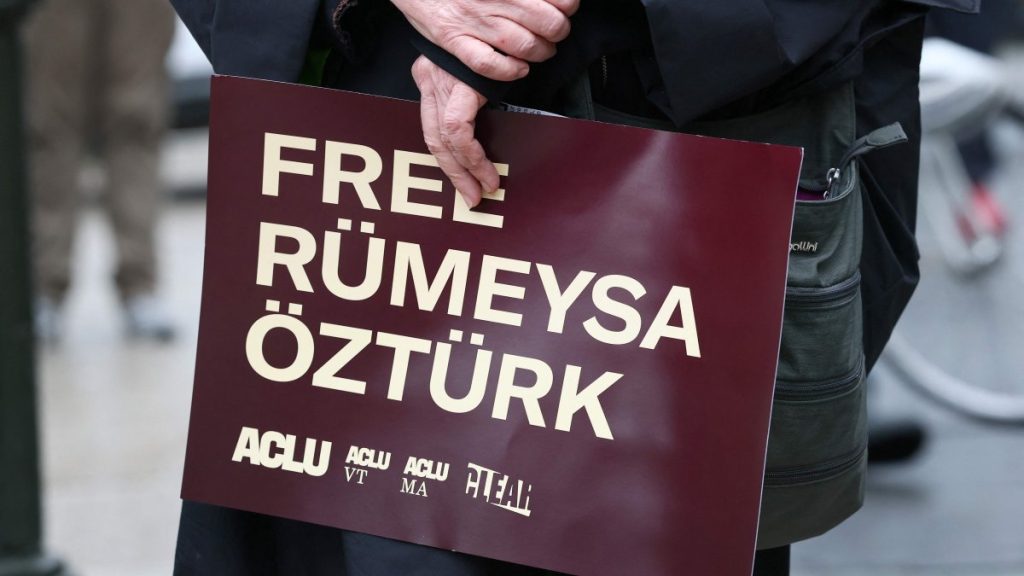A federal judge on Thursday decided to assess the release of a Tufts University doctoral student being held in an immigration detention facility in Louisiana without waiting for President Donald Trump’s administration to return her to Vermont as previously ordered.
Burlington, Vermont-based U.S. District Judge William Sessions instead opted to let Rümeysa Öztürk appear remotely at a bail hearing on Friday. Öztürk, who is a citizen of Türkiye, is at the center of what has become one of the highest-profile cases to emerge from the Republican president’s campaign to deport pro-Palestinian students on American campuses.
Sessions had earlier ordered the administration to bring Öztürk to Vermont so she could appear in person for court hearings on her claims that she had been unlawfully detained for six weeks for engaging in pro-Palestinian campus advocacy.
Her lawyers have said she was arrested on March 25 by masked U.S. immigration authorities on a street in the Boston suburb of Somerville, Massachusetts, after co-writing an opinion piece in the Tufts student newspaper that criticized the university’s response to Israel’s war on Gaza.
After Öztürk’s arrest, she was transferred to Vermont before being sent to the Louisiana detention facility, where she is being held. Öztürk was located in Vermont when the lawsuit challenging her detention was filed. After the New York-based 2nd U.S. Circuit Court of Appeals on Wednesday gave the administration an extra week to move Öztürk to Vermont, her lawyers convinced Sessions to proceed with Friday’s bail hearing and allow her to appear remotely instead to speed along her release.
“She really shouldn’t be forced to undergo another week of detention,” Monica Allard, a lawyer for Öztürk at the American Civil Liberties Union of Vermont, said during a Thursday morning hearing.
Acting U.S. Attorney Michael Drescher, arguing for the administration, contended that holding the bail hearing on Friday contradicted the schedule that the 2nd Circuit had contemplated when it gave U.S. Immigration and Customs Enforcement until May 14 to transfer Öztürk to Vermont.
“It just seems to be in tension with the language in the Circuit’s decision, Drescher said on Wednesday.
Allard cited Öztürk’s health as a reason to move forward with a bail hearing even if she was not physically present. Öztürk’s lawyers have said she has suffered several asthma attacks while in custody that have become progressively more serious.
Since she arrived in Louisiana, Öztürk has lived in a “cramped room with poor ventilation” with 23 other women for almost all hours of the day, according to her team.
‘Step in the right direction’
Meanwhile, U.S. Sen. Ed Markey called for Öztürk’s release after the 2nd Circuit ordered her transfer.
“This is an important moment. It is a step in the right direction,” Markey said in a video message on X.
“She deserves to be free. But we can’t stop here. We must keep speaking out against authoritarianism. That is what the Trump administration is all about.
“We must ultimately see the release of Rümeysa,” Markey said.
Another student, Mohsen Mahdawi, who spent 16 days in a Vermont prison for leading anti-war protests at Columbia University, said in his message to Öztürk and others to “stay positive and don’t let his injustice shake your belief in the inevitability of justice.”
“People are working hard. Communities are mobilizing,” the Palestinian student said. “The justice system has signaled to America with my case and with Rümeysa’s yesterday with the Second Circuit, that justice is functioning and checks and balances are still in function.”


